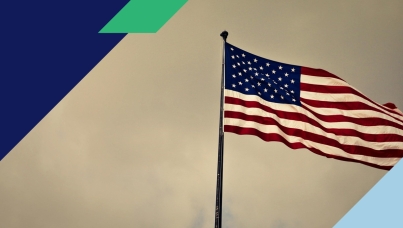More small businesses cite revenue as a concern
Washington, DC, March 26, 2025 — The Q1 2025 MetLife/U.S. Chamber of Commerce Small Business Index is 62.3, down from last quarter’s Index Score of 69.1 but matching its reading from this time last year (62.3). While most Index measures are not down significantly this quarter, there is a slight softening across many of them, including business health, cash flow, and plans for increasing staff in the future. In contrast, views of the U.S. and local economies are stable.
This quarter, inflation continues to be the biggest challenge facing small business owners. However, revenue has jumped significantly as a concern, reaching its highest point since tracking began in 2021. This increased concern is especially pronounced among small businesses in the Midwest, South, and West regions; the number of small business owners and decision makers saying that revenue is one of the biggest challenges is up double-digit percentage points in these regions.
A majority of small businesses say that they’d be more likely to hire an entry-level employee that has previous leadership or internship experience. When it comes to preparing new employees to enter the workforce, nearly all small business owners believe that trade schools or technical colleges are effective. A majority say the same of colleges, while only about half say the same of high schools. In the same vein, small businesses largely believe that the entry-level employees that they have recently hired are prepared, although few believe that they are very prepared. Lastly, a majority of small businesses plan to be more transparent about salary to attract new employees.
For more information about this study, please click here.
About the Study
These are the findings of an Ipsos poll conducted between January 28th to February 14th, 2025. For this survey, a sample of 755 small business owners and operators age 18+ from the continental U.S. Alaska and Hawaii was interviewed online in English.
The sample was randomly drawn from partner online panel sources that specialize in B2B sample and does not rely on a population frame in the traditional sense. Ipsos uses fixed sample targets, unique to the study, in drawing sample. Small businesses are defined in this study as companies with 500 or fewer employees that are not sole proprietorships. This sample calibrates respondent characteristics to be representative of the U.S. small business population using standard procedures such as raking-ratio adjustments. The source of these population targets is U.S. Census 2020 Statistics of U.S. Businesses dataset. The sample drawn for this study reflects fixed sample targets on firmographics. Post-hoc weights were made to the population characteristics on region, industry sector and size of business. Additional post-hoc weights were made to the population characteristics on the gender of the business’s owner and whether the business is minority-owned or not. The source of these two weight variables is the Small Business Administration’s 2022 Small Business Profiles.
Statistical margins of error are not applicable to online non-probability polls. All sample surveys and polls may be subject to other sources of error, including, but not limited to coverage error and measurement error. Where figures do not sum to 100, this is due to the effects of rounding. The precision of Ipsos online polls is measured using a credibility interval. In this case, the poll has a credibility interval of plus or minus 4.4 percentage points for all respondents. Ipsos calculates a design effect (DEFF) for each study based on the variation of the weights, following the formula of Kish (1965). This study had a credibility interval adjusted for design effect of the following (n=755, DEFF=1.5, adjusted Confidence Interval=+/-5.9 percentage points).
Starting with the March 2020 survey, small business decision makers are reached via an online survey, in place of the typical phone-based approach. This methodological shift is in response to lower anticipated response rates in dialing owners at their businesses as a result of mandated closures related to the COVID-19 outbreak. While significant changes in data points can largely be attributed to the recent economic environment, switching from a phone to online approach may have also generated a mode effect.
For more information on this news release, please contact:
Mallory Newall
Vice President, US
Public Affairs
+1 202 374 2613
About Ipsos
Ipsos is one of the largest market research and polling companies globally, operating in 90 markets and employing over 18,000 people.
Our passionately curious research professionals, analysts and scientists have built unique multi-specialist capabilities that provide true understanding and powerful insights into the actions, opinions and motivations of citizens, consumers, patients, customers or employees. Our 75 solutions are based on primary data from our surveys, social media monitoring, and qualitative or observational techniques.
Our tagline "Game Changers" sums up our ambition to help our 5,000 customers move confidently through a rapidly changing world.
Founded in France in 1975, Ipsos has been listed on the Euronext Paris since July 1, 1999. The company is part of the SBF 120 and Mid-60 indices and is eligible for the Deferred Settlement Service (SRD).ISIN code FR0000073298, Reuters ISOS.PA, Bloomberg IPS:FP www.ipsos.com



